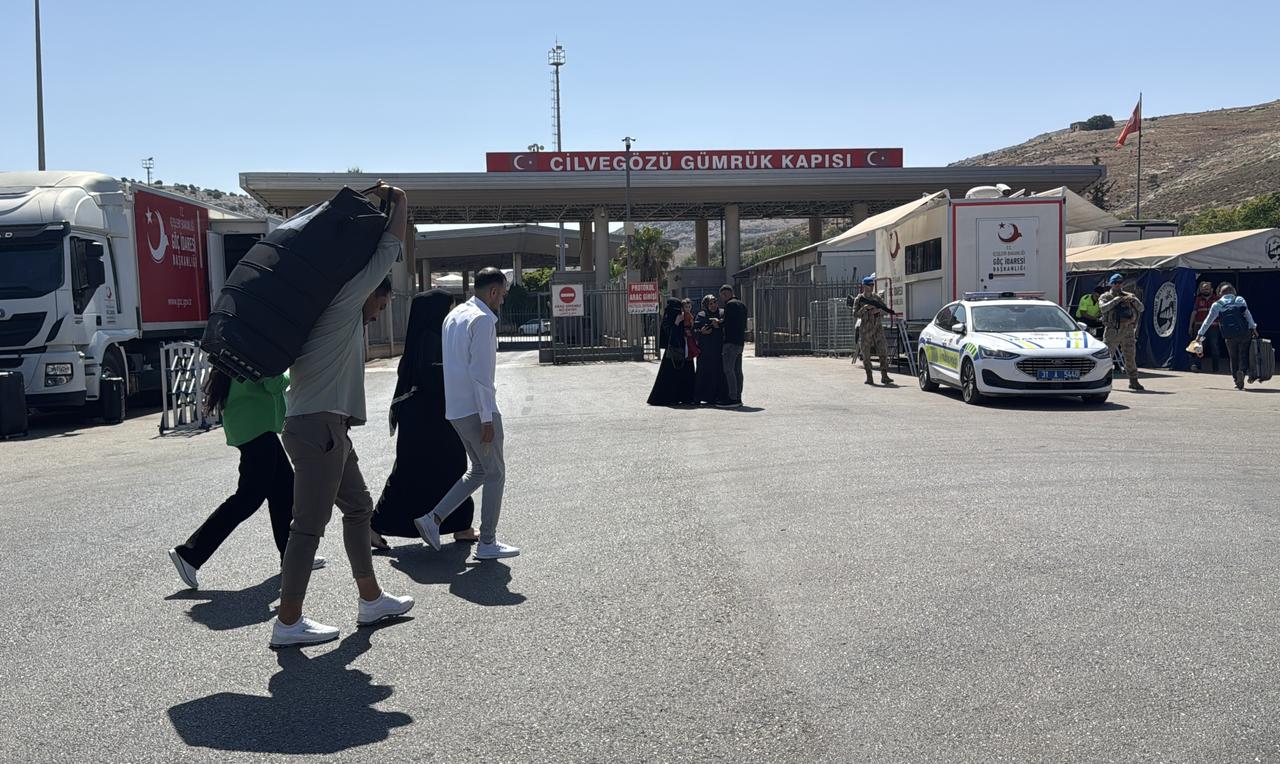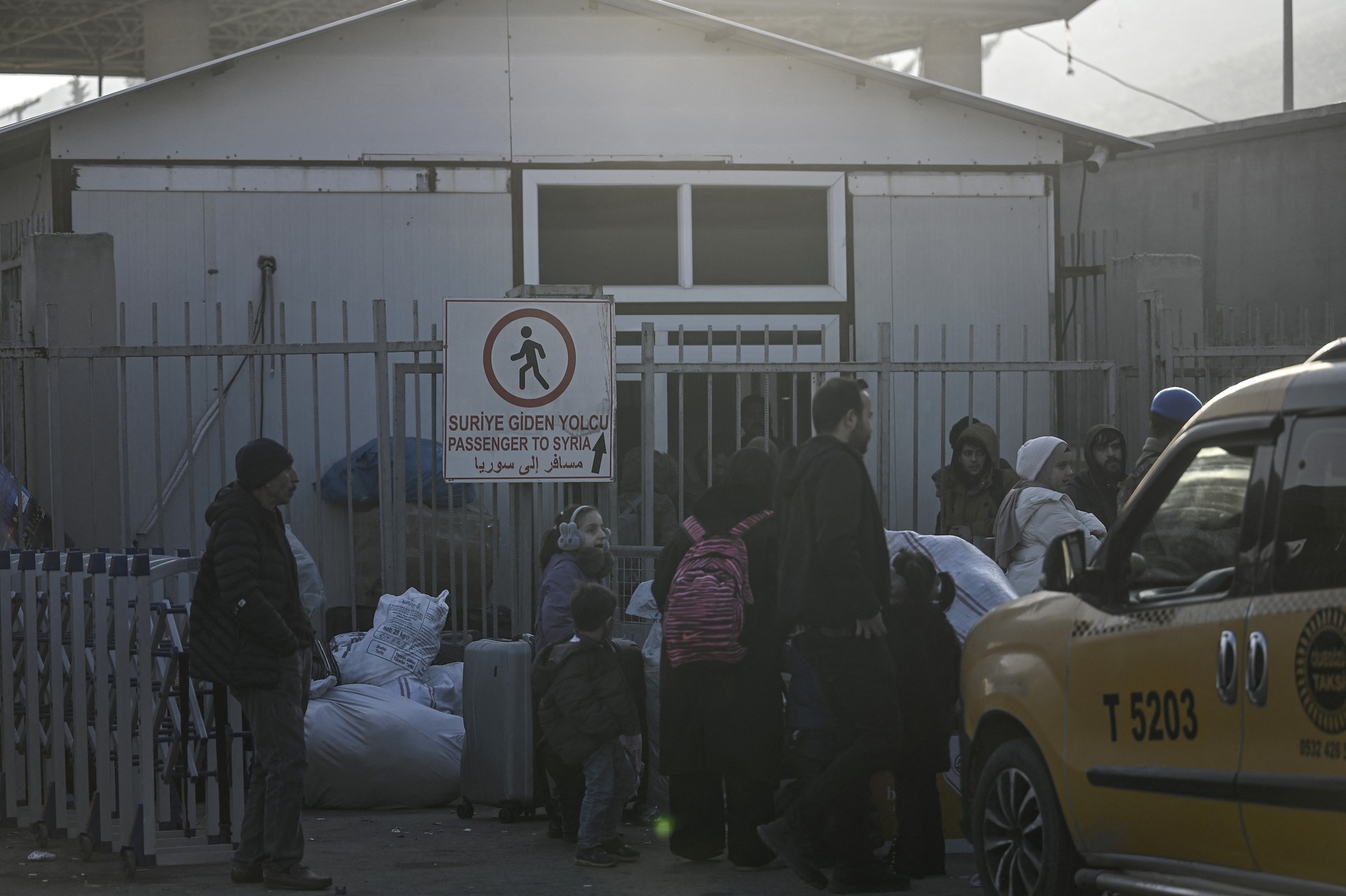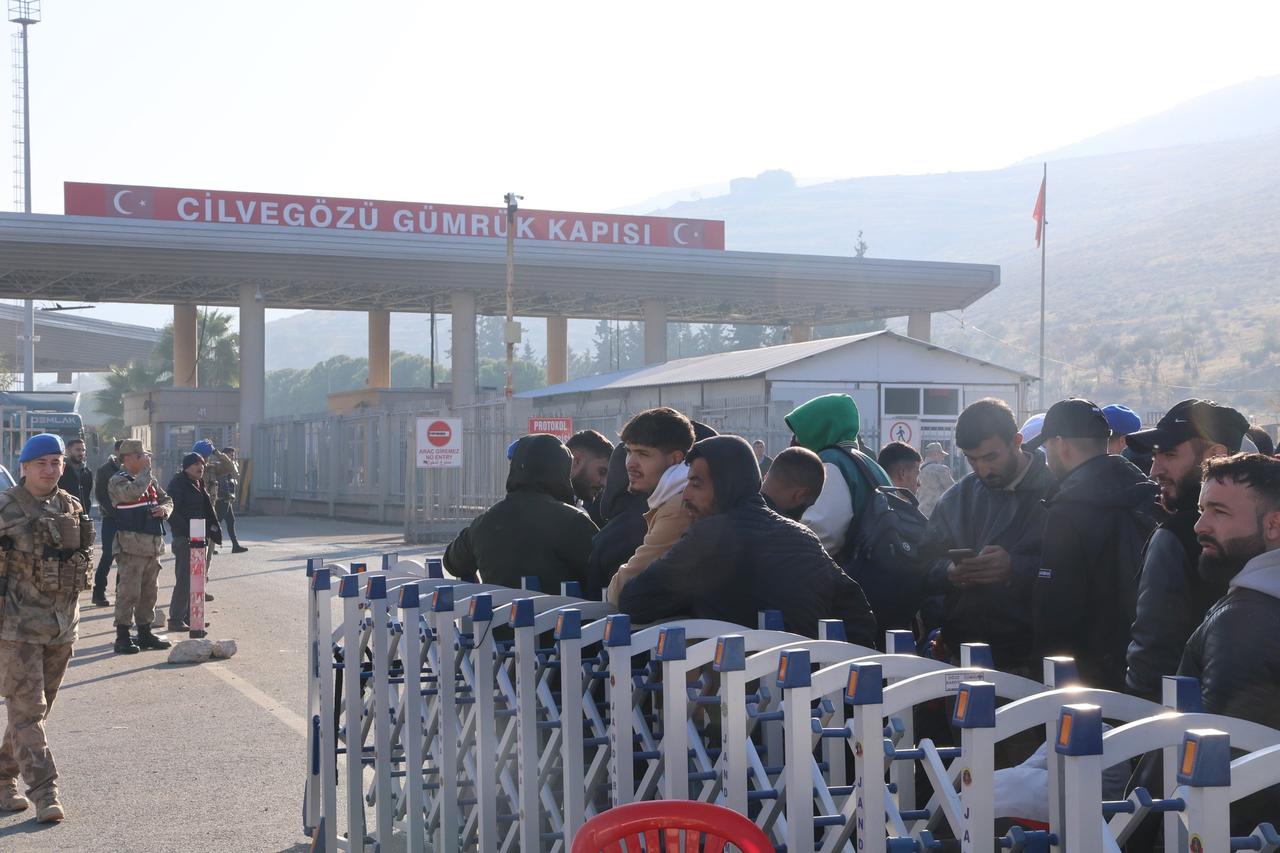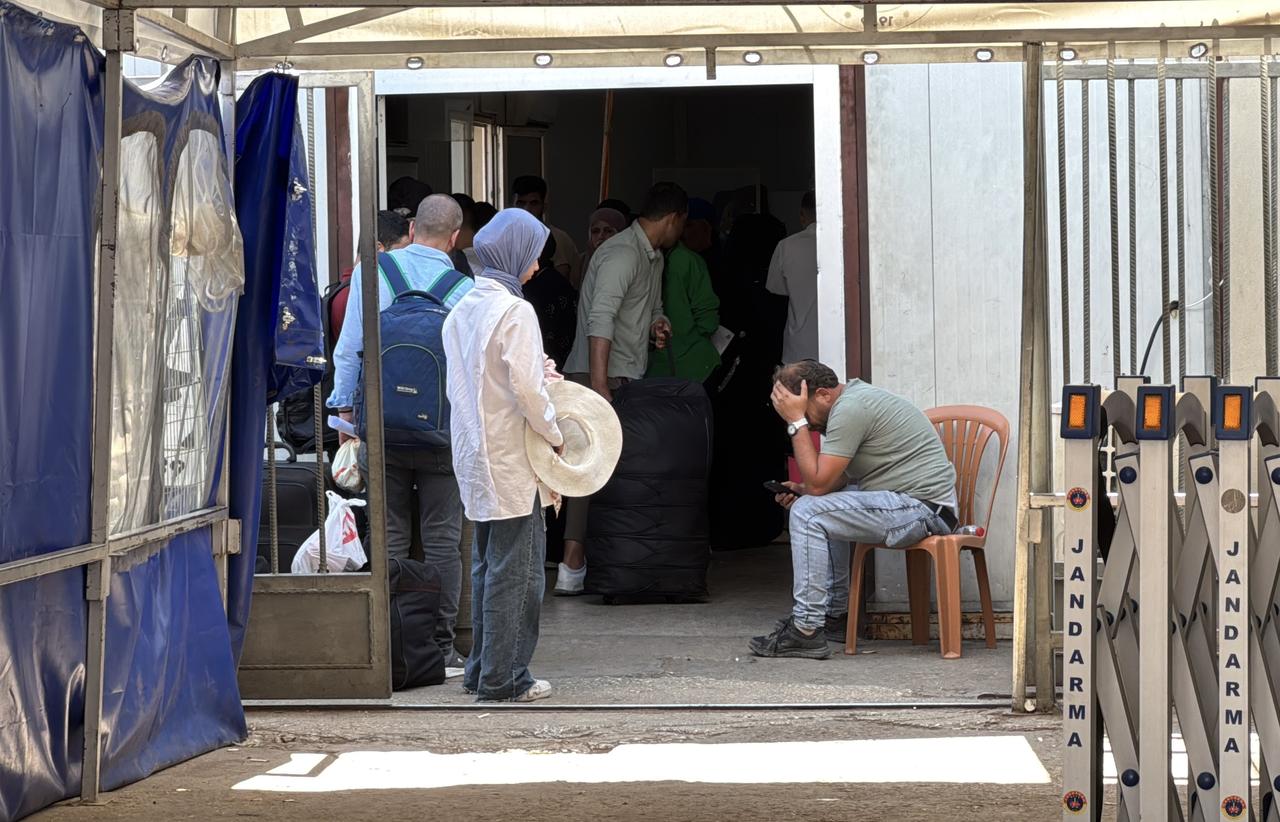
Syrian refugees continue their voluntary and permanent return to Syria through Türkiye's border crossings, with many planning to celebrate Qurban Bayram, also known as Eid al-Adha, in their homeland following the fall of the 61-year Baath regime.
Syrians seeking to return to their country continue crossing through the Cilvegozu Border Gate in Hatay province as part of voluntary and permanent return programs.
Syrian refugees who fled to Türkiye during the civil war are now using the Cilvegozu Border Gate in Reyhanli district to return home following the overthrow of the Baath regime.
Gendarme forces have established organized corridors for returnees, who complete customs procedures for voluntary and permanent departure. Female gendarme personnel provide special attention and refreshments to children waiting while their families complete processing procedures.
Mobile Service Unit vehicles from the Immigration Administration stationed at the crossing help expedite departure procedures for returning families.

Returns continued through the Oncupinar Customs Gate in Kilis province, even on Eid al-Adha eve, with Syrian refugees completing procedures at the Voluntary Return Unit before departing for their homeland.
Nedal Ali, 20, who came to the Oncupinar gate to return to his country, said: "We loved Türkiye very much, thank you. The war in our country is over and now we will return to our country."
Twelve-year-old Nagem Elali, expressing happiness about spending Eid in his homeland, said: "I came to Türkiye 5 years ago. I am very happy that I will spend Eid al-Adha in my country. I thank the Turkish people very much."

The United Nations Office for the Coordination of Humanitarian Affairs (UNOCHA) reported that more than 1.5 million internally displaced Syrians and refugees from neighboring countries have returned to their regions since the fall of Bashar al-Assad's regime on Dec. 8, 2024.
Edem Wosornu, director of Operations and Advocacy at UNOCHA, provided updates on Syrian developments during a weekly press briefing at the U.N. Geneva Office, participating online from Gaziantep.
"In Syria, 16.5 million people need humanitarian aid and protection," Wosornu stated, noting that population mobility and displacement continue despite the political transition.
Despite increasing challenges, humanitarian operations continue with the U.N. and partners reaching an average of 2.4 million people monthly through both internal and cross-border operations, Wosornu reported.
"We hope that the US decision to lift sanctions on Syria and the European Union's recent decision to lift economic sanctions will facilitate relief, recovery and development," Wosornu said.
She emphasized that Syrian colleagues will work closely with transitional government officials and expressed anticipation for progress in these developments.
When asked about specific return numbers since Assad's regime fall, Wosornu provided detailed statistics: "More than approximately 1 million internally displaced persons have returned to their regions. More than half a million refugees have also returned from neighboring countries."
The U.N. official reported that approximately 1,000 aid trucks have entered Syria since the beginning of the year, expressing gratitude to Türkiye and other stakeholders for their cooperation in this process.

Many returning Syrians are timing their departure to celebrate Qurban Bayram in their homeland after years of displacement. The voluntary return process allows families to reunite with relatives and rebuild their lives in post-Assad Syria.
The smooth border crossing procedures, facilitated by Turkish authorities and international organizations, reflect the organized approach to managing the large-scale voluntary repatriation.
Returning refugees consistently express gratitude for Turkish hospitality during their years of displacement. The testimonials highlight the positive reception Syrian refugees received in Türkiye during the civil war period.
The organized return process demonstrates Türkiye's commitment to facilitating safe and dignified repatriation for those choosing to return voluntarily to their homeland.